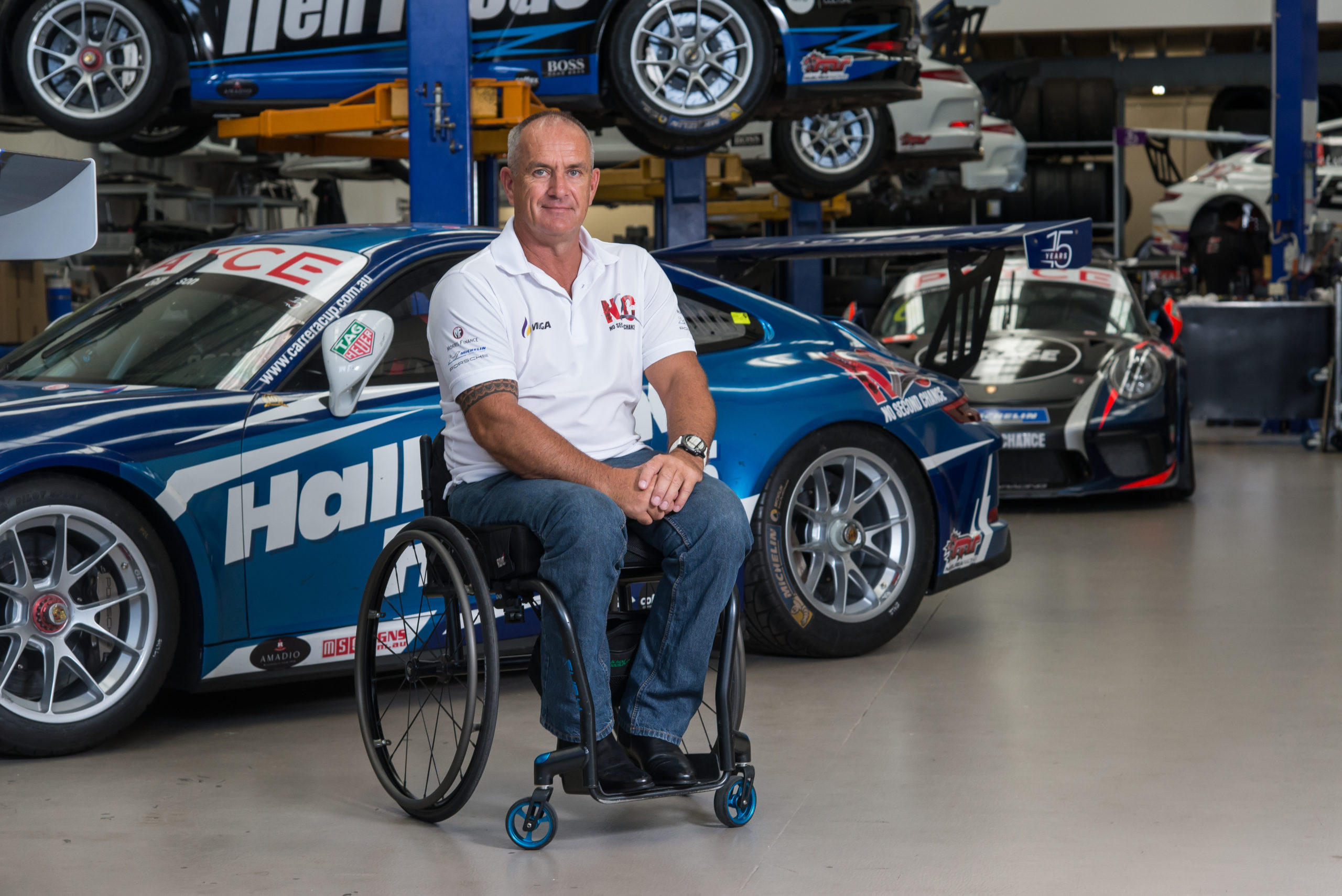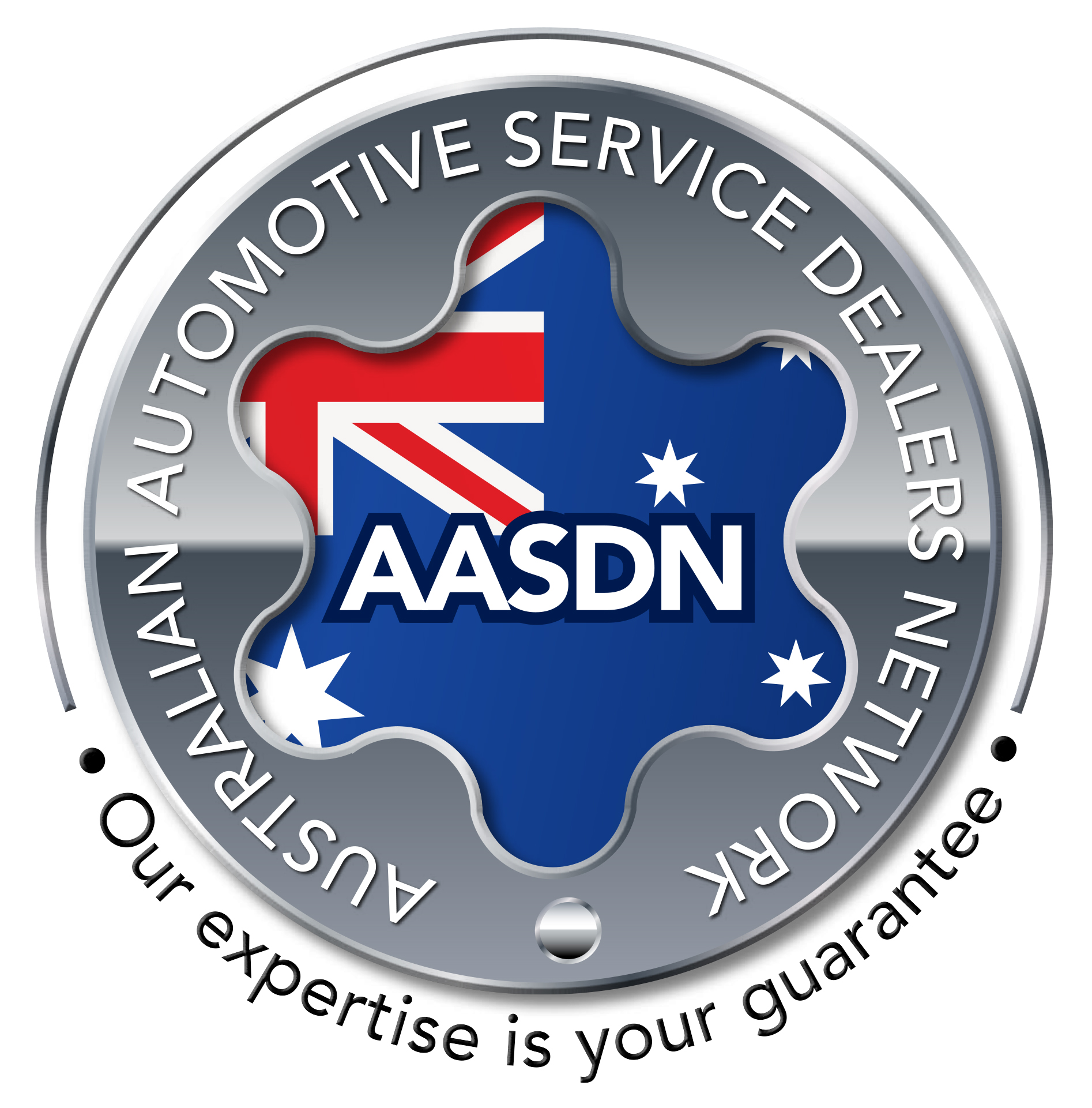Matt Speakman on perspective, challenging yourself and giving back.
When Matt Speakman looks back on that fateful day in 1990, he doesn’t ponder the ‘what if’s?’ or dwell on how his life could have been better or worse – that would just be wasted energy. He believes he was given a glorious challenge to overcome. A course of belief, grit and will power that has led to a full and rich life.
As a young guy in his early 20’s, Matt was working hard to become a professional motorcycle racer. When he wasn’t at the race track he was managing nightclubs.
“The racing was dangerous and the nightclubs were hard work. The combination was unsustainable long term and I was coming to a cross road in my life where I was going to have to tackle the future.”
Heading home one night after work on his road motorbike, Matt’s life was changed in an instant when he collided with a drunk driver who had turned out of a road in front of him. The next thing Matt knew, he was waking up feeling sore in hospital, trying to piece together what had happened. It was not long after regaining consciousness that he received the news that he was a paraplegic.
“It was shocking and hard to even comprehend the extent to which my life would change. My mind swirled and I was devastated.”
Initially, the mental anguish was hard to overcome as Matt pondered all the things he wouldn’t be able to do again – which had him teetering on an emotional edge. Trying to grasp at any positive element was hard, but Matt found a new perspective one afternoon when he really considered the new reality for another patient in his room who had just become a quadriplegic. Matt was able to reframe his own situation and take stock of where he was at.
“Fortunately I had income protection and an insurance policy that enabled me to take care of the bills moving forward. So, I was 26, alive, financially secure and had nothing to lose. What were the coolest things I could do?”
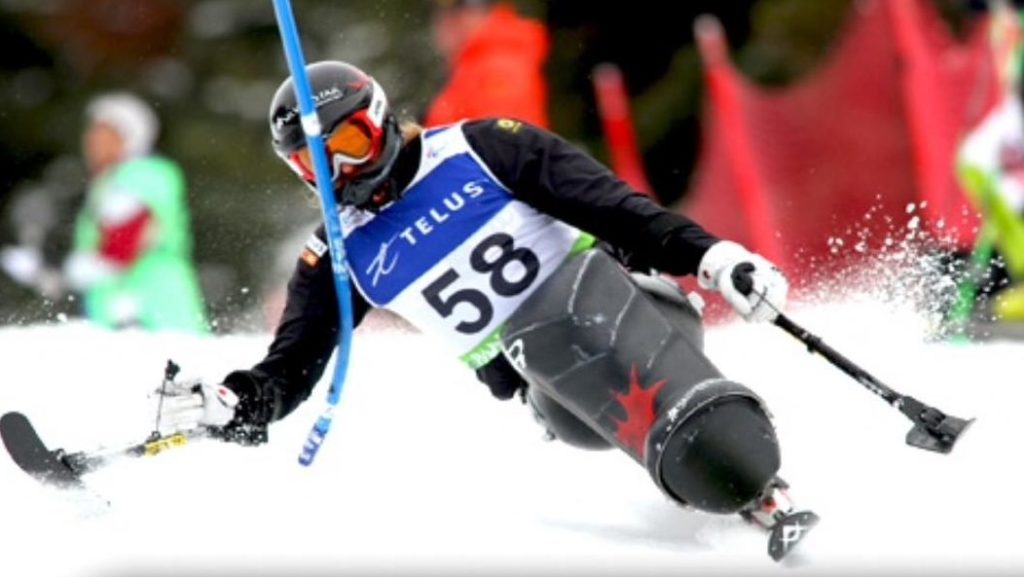
“I am about looking forward. Once I’ve done something, I’m concentrated, focused, and looking for the next challenge.”
Adjusting and Progress
Part of Matt’s rehabilitation was adjusting to his new reality and working out how to approach tasks that he previously didn’t even have to think about.
“I started small with a task of getting to the beach. That was hard. Sand is tough for a wheelchair, but with modifications, I made it down to the beach. Next came swimming, then snorkeling, followed by some scuba diving.
“Accomplishing these activities gave me confidence in myself, my ability to overcome adversity and gave me hope and excitement for the adventures to come. And of course, being told you can’t do something is also a great motivator.”
When Matt heard about a team of handicapped sailors wanting to race in the Sydney to Hobart yacht race, he was quick to find out how he could join in. After a series of training races where Matt and the crew found ways to operate the boat as a team, it was time for the big race.
The 1994 Sydney to Hobart race records show the Sailors With Disabilities team finished 37th on handicap, which considering their limitations was an incredible achievement.
“Being part of a team was fantastic and to have these intense shared experiences and a common goal is a great feeling. We were all really proud.”
The sailing bug remained long after crossing the line in Hobart, and sailing around the world started to swim around in Matt’s head. Any thoughts of this soon evaporated when a crewmate on his disability yacht announced a campaign to circumnavigate the globe.
“I was actually relieved in a way when the announcement came out. That was going to be a big one,”Matt said with a smile.
But it was the accomplishment of competition sailing that opened Matt’s eyes to the fact he really could do nearly anything he set his mind to and he was now committed to living a life that challenged himself. That attitude has been a theme that has led Matt through a huge range of adventures and experiences, from motorsport through to skiing.
The skiing bug started while holidaying with his girlfriend in the U.S. An opportunity to learn to ski with an instructor on the slopes intrigued Matt and after getting the hang of it and laying a few carves, he was immediately hooked.
“Carving on the slopes reminded me of the feelings I had on motorbikes. “I was all in.”
A year round training program began at Thredbo and when summer hit in Australia, Matt headed to Canada, with a clear goal to compete in the 2006 Torino Paralympics.
“It was during training that I saw the reality for other competitions in the winter Paralympics team. Quadriplegics were forging on and blind skiers were absolutely flying down the mountains. It was truly inspiring. The human spirit is an incredible thing.”
With training complete, Matt was set to head to Italy for the games, however sadly had to make the difficult decision to pull out to spend more time with his father who had been diagnosed with cancer.
“It’s not always the destination that matters, but the journey itself.”
Giving Back
I had to take part in a public speaking and marketing course with Wayne Gardner as part of my training around professional motorcycle racing, so I was quite comfortable in that sphere. I embraced the fact that my unfortunate accident meant I could potentially make a difference to others, irrespective of their current situation in life.
The N2C (No Second Chance) campaign, has been a great campaign for school kids. We have spoken to thousands, and talked about areas such as road safety & youth violence with Matthew Stanley. These have received great feedback.
If I can help prevent someone else going through what I have gone through, it’s great to know that something has been done.
We also talk about having a life positivity, and a need to be resilient in life as well.
First time I went to Sydney in my wheelchair by myself. I was unsure of myself, I felt very self conscious, and I felt like everyone was looking at me.
After I did my first big yacht race, I felt I could do things others could do and after I had a haircut people were looking at me and I realized you need to change how you interpret your reality.
If I put a negative lens on the situation, I could say “they are looking at me because I am paralysed.” If I put a positive lens on, they could be looking at me because “I am looking SHARP after my haircut!”
If you are happy with yourself, then you’re living with a positive head space. If you get into a negative headspace, it spirals into your life and relationships. Choose to be positive. Positivity feels better than negativity. Trust me.
Matt recalls another example of how attitude rubs off on those arounds you.
“I eventually headed back to one of my previous nightclubs and the team there. Everyone was sad for me, the room was mellow and a couple of the girls were crying. It wasn’t the best vibe. So I suggested we all go out for dinner and we were able to have a nice conversation about everything and that I was ok, I was comfortable with my situation and wasn’t going to let that stop me in life. When we headed back to the nightclub that night, everyone was happy and we all had a great time.”
“I am about looking forward. Once I’ve done something, I’m concentrated, focused, and looking for next challenge. The dreams of world domination are still kicking around inside me. More recently, I have chosen to try to live in the moment a bit more.”
Motorsport
Matt was always a motorsport fan, starting with his motorcycle racing ambitions and despite a long time away from the scene, the bug always itched so, inspired by his yachting adventures, one day he decided to work out a plan to get back into racing.
The Confederation of Australian Motor Sport (CAMS) was not comfortable, at the time, with Matt’s plan to convert a Superkart to hand controls and declined his proposal to gain a licence, but Matt was unperturbed.
“I called CAMS back every week on Wednesday morning for nearly two years, addressing the constant concerns and obstacles that were being raised by CAMS and finding solutions.”
Due to CAMs concern that a flag marshall will have to come out onto a live racetrack and assist Matt should a crash occur, that was an unacceptable risk, however CAMS did eventually allow him to compete in hill climbs and rally events.
“I started to prepare a 1600cc Toyota Celica and worked out a way to install a hand control setup, which was challenging and time consuming, but we got there and in 1997 I did the NSW Rally championship with solid results in my class.
I may have got a little excited and decided to step up to the Australian Rally Championship in a Mitsubishi Evolution for 1998. The commitment and budget was a far greater requirement and after a large crash on the way home where the rally car was significantly damaged, the subsequent rebuild and attempt to continue proved too much, and the budget had dried up. As a result I gave the game away for a while to regroup, which involved purchasing a nightclub in Sydney to rebuild my career. “
In 2008 Matt decided to have another crack at motorsport, but this time went back to basics. He started with motorkhana and autocross events, and after winning many events outright for a couple of years, he again turned his vision to racing.
CAMS was able to review his application to compete as races now went under a safety car, making the situation more workable. He had to undergo a number of medical tests and then CAMs set him a daunting challenge. He was told he would have to extricate himself from the car, fully belted up and exit the drivers and passenger side within 12 seconds. To the surprise of CAMS, Matt kept practicing and met the requirement.
“That was in 2011. We got the Celica going into a circuit racing car and in 2012 we raced in the Improved Production championship. Somehow we won the championship 1st time out.
I went looking for a sequential gearbox so I could use hand controls. We discovered the Porsche 997. We spoke to Thomas Mezera and asked if we could lease a car for a test session. He put me in touch with Andy McElrae. He was happy to help get it up and running, thankfully. We completed some test sessions and in developing the hand controls I burnt through the budget.”
Matt made some contacts, and found four other people like him in the same situation. No one believed anyone in a wheelchair could race competitively. Naturally there was pressure on him not to crash as it would draw so much attention.
“Between 4 of us, we put together Mission Impossible Racing. We decided to do the Dubai 24hr endurance race and that had 100 cars. Not only did we finish, but competing in the BMW class, we qualified 67 and moved up to top 50 outright. We got through and we proved to ourselves we could be competitive.
Alex Zanardi was asking what we were using and kindly sent us individual cards saying good luck.”
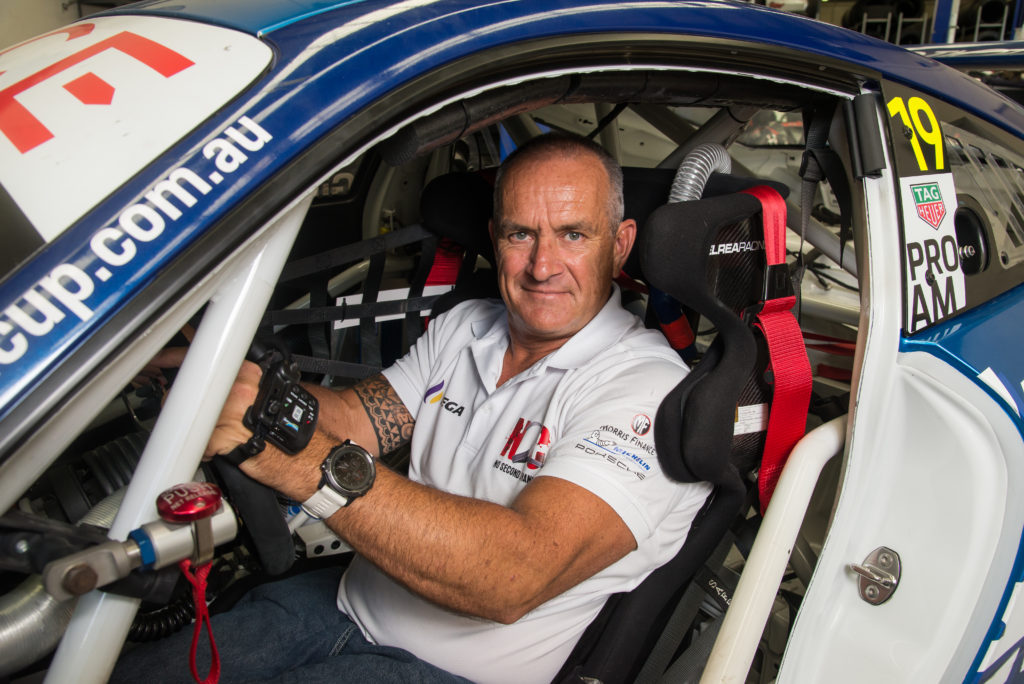
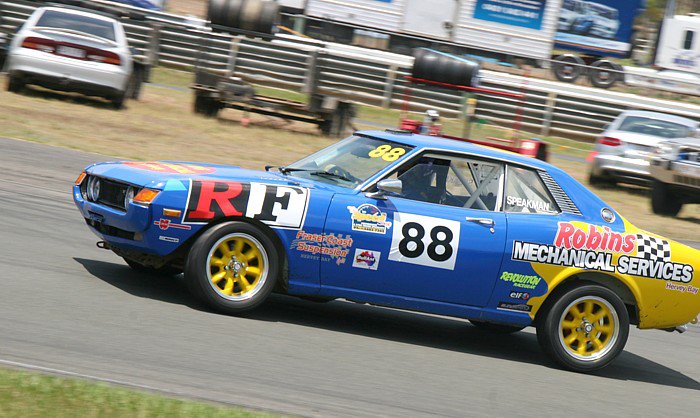
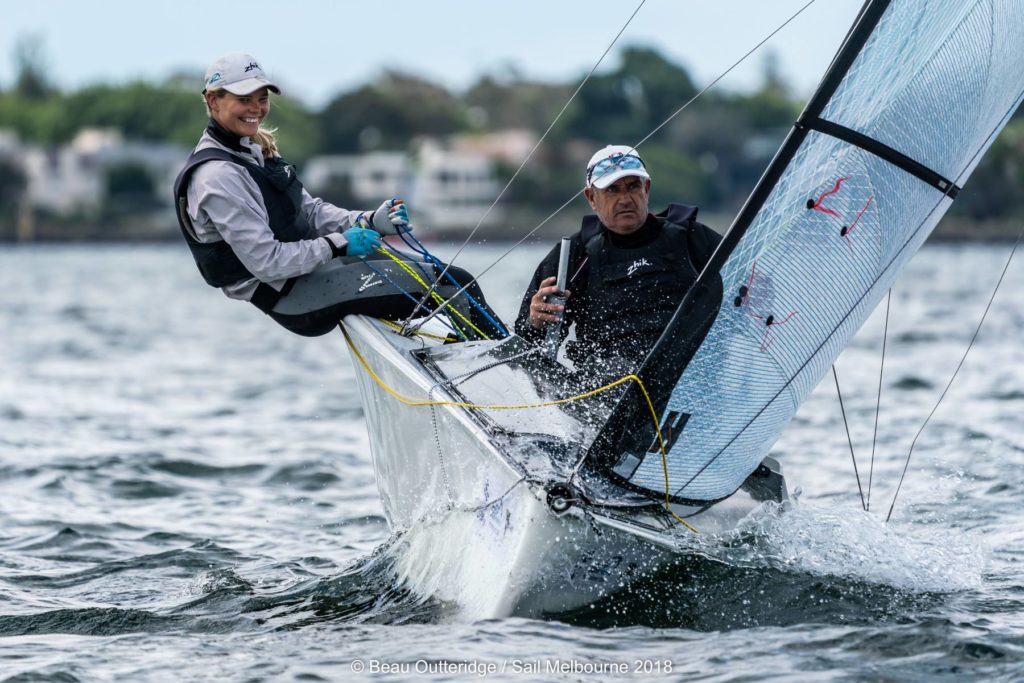
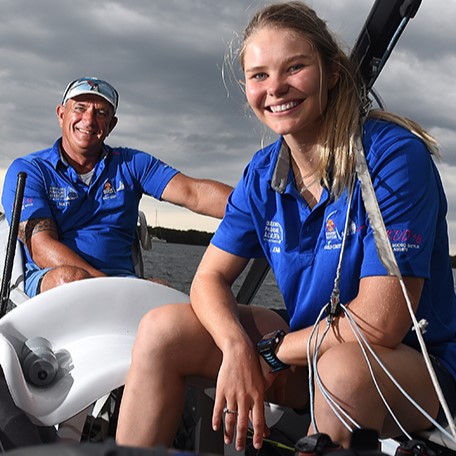
The Future
Competing in the Porsche Challenge is the next goal.
“Now we have much better systems for hand controls, it’s possible to race in the GT3 Cup Challenge, then hopefully get into Carrera Cup. A working sponsorship program is what we are after. But we also have to be aware of the braking system, as using hand controls, well, they’re still very sensitive.”
Spinal Injury Awareness
“I remember talking with mates only days before my injury about how we would all feel if we were paralysed. I clearly remember saying “I’d rather be dead”. The stigma of ending up in a wheelchair in society is still very present.
When I woke up with a spinal injury, I admit to initially feeling that it was a step away from being dead. Looking back now that was a scary thought and just not true, but when speaking to people who have recently obtained a spinal injury, this mindset is common and precisely the reason I am working hard to reach people and share the message in this area.”
Matt says there are over 12,000 recorded cases of spinal cord injury in Australia and every year there are 300-400 new cases.
“Part of my mission is to reach people before they end up in a wheelchair, and also hammer home to the whole society that having a spinal injury is not the end of the road. What has happened, has happened. You can’t change it, but you can choose how to react to your situation. Everyone has the strength within them to get passionate about something, anything, that fits in with your ability and anything is possible in life. “
To support research into spinal injury donations you can learn more and donate at the Perry Cross Foundation – www.pcsrf.org.au
To learn more about the No Second Chance Youth Safety Campaign, a powerful program to save teen lives arising from tragic consequences of Youth Violence and road Accidents – n2c.com.au
Follow Matt Speakman’s journey – www.mattspeakman.com | www.facebook.com/SpeakmanRacing
